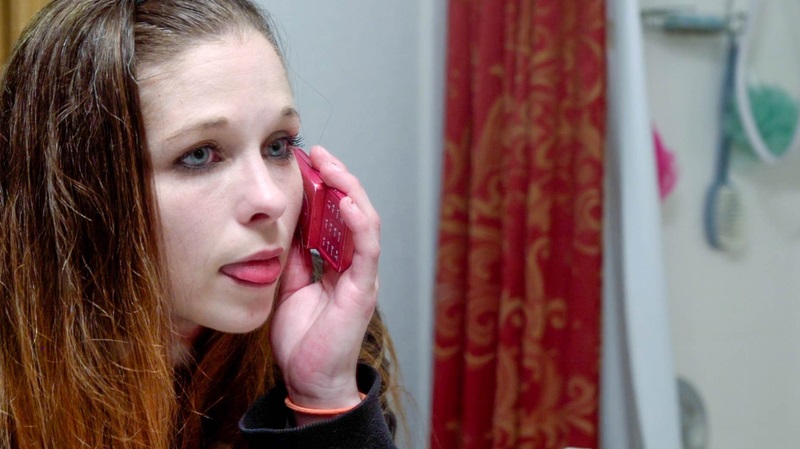The subjects of documentarians Elisa Levine and Gabriel Miller’s Sweetheart Deal partake in sex work that fits some of our most troped social understandings of the trade. They walk the streets of Aurora, a major cruising center of Seattle, often getting picked up off the side of the road or meeting potential johns in parking lots.
Sweetheart Deal’s willingness to have these women share so frankly, and to follow them over such an extended period of time, allows for an intimacy that can feel particularly raw, often bordering on uncomfortable. We see these women in the aftermath of abusive interactions, while attempting to get clean, in the hospital and in traumatic court proceedings. At moments, Sweetheart Deal allows us into such deeply vulnerable moments that I fear an almost exploitative flavor.
Is this, though, my own bias? Do I really want to suggest that these women, albeit in vulnerable spaces and moments, don’t have the agency to allow for their experiences to be documented? I can’t tell if my occasional adverse reaction to the experiences that Sweetheart Deal portrays is a concern that these women are being leveraged upon as an underhanded PSA, or if I am simply uncomfortable with the lived truth these women have allowed for me to peer into. Ultimately, I feel that Sweetheart Deal consistently allows for its subjects to speak for themselves, and that the level of intimacy found in the very documentary process—a multi-year documentation through many shifts for each of the subjects followed—attests to the closeness between the crew and the “girls.”

All of the women of Sweetheart Deal are connected not just by work but by their varied relationships to a man who goes by Elliot and proclaims himself the “Mayor of Aurora.” From his trailer on the side of the road, Elliot offers these women a multitude of community-oriented services—a place to sleep, food to eat, a bed, and some sleeping pills if they want to get clean. He remembers their birthdays. He makes them food.
But Elliot also tenses when one of the women mentions his willingness to give them Klonopin. He uncomfortably jokes at one of the subjects, Tammy’s, birthday dinner about getting her drunk enough to throw her into his bed and keep her from turning tricks for the night. These peculiar occasional tensions point to the eventual reveal of Sweetheart Deal’s saga: Elliott is not caring for these women simply out of the kindness of his heart, but is assaulting these women viciously and regularly, and almost always without their knowledge.
Sweetheart Deal exemplifies, simply by tracking this group of women for the length that it does, how many systems are in place that make it near impossible to free themselves from cycles of addiction and abuse. To be clear, I am not suggesting that sex work is inherently abusive, or inherently a harmful cycle to partake in, but instead noting that some of the women of Sweetheart Deal have other career paths hey wish to pursue but are systemically barred from due to stigma around their current work or their active addiction. Kristine, good-humored and frank, speaks of the near impossibility of shaking a heroin addiction and holding down a “regular” job at the same time, even though she is a trained welder. Many of these women are responsible for parents and/or children, and are given no sustained chance at making meaningful income outside of turning tricks.

These women turn to Elliott regularly because, frankly, there is often no other place to go. I can only hope that audiences see Sweetheart Deal as a telling of singular stories and a cry for community care that is as diverse and nuanced as the worlds of addiction, harm reduction, and sex work. Elliot is a monster, but we will never be able to entirely rid ourselves of the monsters. In fact, Elliot isn’t even the only monster in Sweetheart Deal. The film opens with one of the women running to Elliot for help after she’s been raped and beaten by a john. What we can do is expand greatly on options for people in these positions and this line of work. More options structurally, more options interpersonally, and the option for these women to remain in these positions without such severe risk. This begins, critically, by letting people like the subjects of Sweetheart Deal say their piece.



